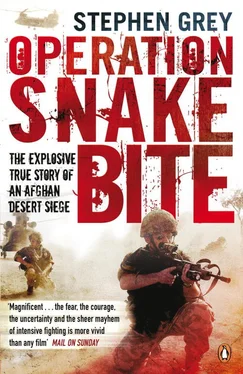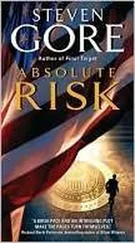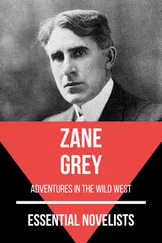A month after he arrived, Gordon Brown took over from Tony Blair as prime minister, opening the door for a fresh view of what Britain was doing in the country. There were some in Brown’s new government who were said by Whitehall sources to regard the whole Helmand venture as a huge strategic blunder. The new Foreign Secretary, David Miliband, was ‘very insistent with me then that he wanted honest advice and he got it,’ recalled Cowper-Coles.
Soon afterwards, the ambassador’s telegrams were getting a reputation in Whitehall. There were murmurs from the military about their ‘undue negativity’
In Helmand, the ambassador saw a military campaign that was beating the Taliban tactically. But he was said to think the army’s policy of constant rotation of commanders was a poor idea, and that the campaign had also still to address the root cause of the conflict. The Taliban were strong because the Afghan government was weak. And the people of Helmand had not decided who to support.
Of the chiefs of the different government departments in Helmand, only four out of eight could even read or write. One Karzai adviser was said to have told the ambassador there were only 200 capable officials across the whole Afghan government. The current Helmand governor, Asadullah Wafa, was ruling the province by mobile phone with virtually no staff. It was almost medieval.
Between Cowper-Coles in Kabul and Adam Thomson, the senior official for the region in London, the elements of a ‘strategy refresh’ were now coming together. Cowper-Coles told me: ‘We faced a persistent insurgency that I was convinced wasn’t going to be dealt with by military force alone. We had a serious counter-narcotics problem. We concluded early on that success here was going to take a very long time.
The campaign in Helmand, they believed, needed civilian leadership. The emphasis should be on building up the Afghans. Above all the accent should be on the long term. The population would not be won over by shiny new bridges or brand new schools or wells. The Soviets had tried that. What counted for Afghans was to know who was going to be in charge in five years’ time. Then they would step off the fence and back a winner.
In his telegrams back to London, according to other sources, much of what Cowper-Coles began advocating involved a better understanding of the tribal politics of Afghanistan. He began to argue for creating a sort of home guard in the villages to be called Community Defence Volunteers, and for a greater emphasis on reconciliation, with some real outreach to the Taliban, at least to those who could perhaps be turned.
The arrival of Mullah Salaam, then, was exactly the kind of opportunity the ambassador wanted. And if Mullah Salaam could be turned, how many more Taliban leaders were out there waiting to be reconciled?
Yet something held him back. The one thing the ambassador did not want was for Salaam’s phone calls to become an excuse for another operation in Musa Qala that ended in embarrassment for Britain, or worse, a bloodbath. Seven British servicemen had died defending Musa Qala in vain last year.
‘I had a gun with me, a pistol in the pocket. I freed myself with it,’ said Mullah Salaam, describing his daring escape after being kidnapped by the Taliban. ‘They came and arrested me. The people helped me, and they released me. I made my stand against them.’
He was talking by phone to the Pashto-speaking source handler from British military intelligence at the brigade headquarters.
‘What’s your situation now?’ said the handler.
‘They have come back. They are surrounding my home. I need some weapons,’ he said.
The handler said he would see what he could do. He could not promise anything.
Military intelligence had been in touch with Salaam for a few days now. They had even sent an agent up to his compound deep within Taliban territory to deliver a satellite phone to him. But he was still a mystery to them.
Their files included reports of a meeting in June between Salaam and an Afghan who worked on Taliban contacts with the European Union diplomat, Michael Semple. Salaam had claimed he was no longer an active fighter but kept a group of twenty bodyguards for protection. Swearing he had no plans to fight the Afghan government, his main concern was how to get hold of more weapons to protect himself. Semple’s adviser could not help with that. In the weeks that followed Semple’s team kept in touch with him – ‘softening him up’ for his switch of allegiance.
Two months later, Salaam began appearing on the diagrams that indicated Taliban leaders that could potentially be targeted for ‘kill or capture’ operations. And then, in the last days of Ramadan (which ended on 12 October), returning from a trip to Pakistan, Salaam had gone up to Kabul and slipped into the presidential palace.
There was little other detail. Salaam was said to have once been a Taliban governor in Uruzghan province next door to Helmand. He was also said to have fought in the 1990s with the Taliban army – helping in the bloody battle to take the northern city of Mazar e Sharif.
Salaam would also claim he had been present in the shura a year back when the British had negotiated handing Musa Qala back to its elders. He said he had watched the agreement collapse in the following months after NATO started bombing. But, like many local Taliban leaders, he said, he had been offended by the subsequent arrival in Musa Qala of the most extreme of jihadists. ‘Outsiders came in,’ he told me later. ‘They were making jackets for explosives, suicide vests. And they were putting heroin factories everywhere.
‘We have got to look for the tipping point,’ said Mackay when he was briefed on the latest phone call. His staff could see he was enthused by Salaam’s approach. ‘If there’s going to be a tribal uprising, there will be a point where it becomes a reality, and it will happen quite quickly.’
For the Brigadier, the very core of a successful counter-insurgency campaign should be the identification of the reasons why an enemy was fighting – and then addressing what grievances could reasonably be dealt with.
The more he learned of the Helmand Taliban, the more convinced he was that so many of them were on completely the wrong side. The bulk of the fighters, he thought, were not terrorists or jihadists or ideologues. They were ordinary tribesmen who were embittered with their government – and desperate for security.
Salaam could be a golden opportunity, a man who could help turn those tribes. If it worked, he offered the opportunity of retaking the town of Musa Qala without a fight. But working out how to help him was another matter. The best Mackay could do was send Apache helicopters and fighter jets to swoop around his compound two days running in a ‘show of force’ to scare off the Taliban threatening Salaam.
Salaam clearly needed more help, but, as Mackay reported back to London, President Karzai’s ideas of exploiting the Salaam factor to drive the Taliban from Musa Qala seemed vague and floundering. After all, Salaam’s compound at Shah Kariz was deep behind enemy lines. And if Salaam was already calling up the military for help, he was hardly going to have the strength to take a Taliban stronghold with his own fighters, whatever Karzai might suggest.
For now, barely a fortnight after taking command, and with the tempo of fighting picking up again elsewhere in Helmand, Mackay’s brigade already had plenty to deal with without an escapade into new territory. There had been far too many of them, he thought. But they should keep their eyes out for that tipping point.
At the palace in Kabul, Cowper-Coles met President Karzai. The president was convinced Mullah Salaam was the real thing: a Taliban and tribal leader with some genuine influence. The British confessed they knew almost nothing about him.
Читать дальше












